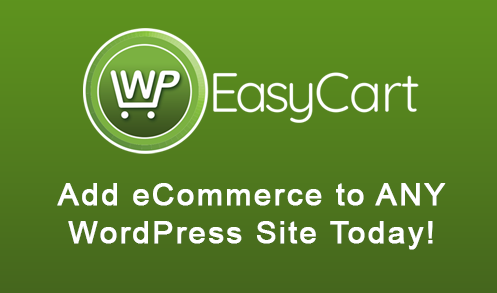Introduction – WP EasyCart vs Shopify
In the world of e-commerce, businesses seeking to establish an online presence often find themselves at a crossroads when selecting the right platform. Two prominent contenders in this arena are WP EasyCart and Shopify. WP EasyCart is a WordPress plugin that seamlessly integrates e-commerce capabilities into an existing WordPress website, while Shopify stands as an independent platform designed specifically for creating and managing online stores. Let’s delve into a comprehensive comparison of these two solutions, exploring their user-friendliness, features, customization potential, scalability, pricing models, security provisions, and customer support.
WP EasyCart

WP EasyCart is a WordPress e-commerce plugin that transforms your WordPress website into an online store. It provides tools for managing products, setting up payment gateways, handling shipping, and more, allowing you to sell products and services directly from your WordPress site. While it offers e-commerce functionality, it operates within the WordPress ecosystem, which might require some technical familiarity compared to dedicated e-commerce platforms.
Shopify

Shopify is a popular and user-friendly e-commerce platform that enables businesses to create, customize, and manage online stores. It offers a range of features, including product management, secure payment processing, customizable templates, and tools for scaling businesses of various sizes. With an intuitive interface and extensive app ecosystem, Shopify simplifies the process of building and running an online store.
Comparison of WP EasyCart vs Shopify
WP EasyCart and Shopify are two different e-commerce platforms that serve the purpose of helping businesses set up and manage online stores. Let’s compare them based on various aspects:
1. Ease of Use:
- WP EasyCart: This is a WordPress plugin that turns your WordPress website into an e-commerce store. It might require a bit more technical expertise as you’re working within the WordPress environment, but it’s generally user-friendly.
- Shopify: Known for its user-friendly interface, Shopify is designed to be accessible to both beginners and experienced users. Its drag-and-drop editor and intuitive admin panel make setting up and managing an online store easy.
2. Features:
- WP EasyCart: Offers a range of features including product management, digital downloads, multiple payment gateways, shipping options, tax calculations, and more. It can also integrate with various WordPress plugins.
- Shopify: Provides a robust set of features including product management, inventory tracking, customizable templates, secure payment gateways, shipping settings, SEO tools, and an extensive app store for additional functionality.
3. Customization:
- WP EasyCart: Offers customization options through WordPress themes and plugins, but the level of customization might be limited compared to platforms specifically built for e-commerce.
- Shopify: Provides a wide range of customizable themes, templates, and a theme editor that allows you to make extensive changes to the appearance of your store. Customization is one of Shopify’s strong points.
4. Scalability:
- WP EasyCart: While WP EasyCart can handle smaller to medium-sized stores, scaling might require more technical knowledge and careful optimization of your WordPress environment.
- Shopify: Designed to scale quickly, Shopify can accommodate businesses of all sizes, from small startups to large enterprises. It offers various pricing tiers to match your growth.
5. Pricing:
- WP EasyCart: Pricing depends on your version (Lite, Professional, Premium, and Unlimited), with one-time fees or yearly subscriptions.
- Shopify: Offers various pricing plans including Basic Shopify, Shopify, and Advanced Shopify, with monthly subscription fees. Additional costs might include transaction fees and app expenses.
Also Reads: WP EasyCart vs ImpleCode: Comparison of WordPress E-commerce Plugin
6. Security:
- WP EasyCart: Security largely depends on your WordPress setup, so you’ll need to ensure your website is properly secured.
- Shopify: Provides robust security measures, including SSL certificates, PCI DSS compliance, and security updates, ensuring a secure shopping environment for both merchants and customers.
7. Support:
- WP EasyCart: Offers documentation, video tutorials, and customer support through their website.
- Shopify: Provides 24/7 customer support via live chat, email, and phone. There’s also a vast community and extensive documentation available.
Cost Comparison
Here’s a general cost comparison between WP EasyCart and Shopify:
WP EasyCart:
- WP EasyCart offers several pricing tiers: Lite, Professional, Premium, and Unlimited.
- Prices are typically one-time fees or yearly subscriptions, ranging from around $69 to $299 for the plugin itself, depending on the version and features.
- Additional costs might include payment gateway fees, web hosting fees for your WordPress site, and any other plugins or extensions you decide to integrate.
Shopify:
- Shopify offers various pricing plans: Basic Shopify, Shopify, and Advanced Shopify.
- Basic Shopify starts at around $29 per month, Shopify at around $79 per month, and Advanced Shopify at around $299 per month.
- Transaction fees apply if you use external payment gateways instead of Shopify Payments.
- Additional expenses could come from third-party apps, premium themes, and potential design or development costs.
Which Is The Better Plugin For The User?
Determining which plugin is better for a user, whether WP EasyCart or Shopify, depends on the user’s specific needs, preferences, and level of technical expertise. Both platforms have their own strengths and weaknesses, so let’s break it down further:
Choose WP EasyCart if:
- You’re already using a WordPress website and want to integrate e-commerce functionality seamlessly.
- You’re comfortable with the WordPress environment and want to maintain control over your website’s design and customization.
- You prefer a one-time fee or yearly subscription payment structure rather than monthly subscription fees.
- You’re looking for a more budget-friendly option, especially for smaller stores.
- You’re willing to invest time in configuring and optimizing your WordPress site for e-commerce.
Choose Shopify if:
- You want an all-in-one, user-friendly e-commerce platform with a straightforward setup process.
- You’re looking for a platform with a wide range of customizable themes and a drag-and-drop editor for easy store design.
- You prioritize scalability and want a platform that can grow with your business without extensive technical knowledge.
- You prefer a platform that takes care of security, hosting, and updates, reducing the technical maintenance burden.
- You’re comfortable with a monthly subscription fee and potential transaction fees.
- You’re interested in leveraging an extensive app store for additional features and functionality.
Also Reads: WooCommerce Vs Shopify: Which One Is Better For E-commerce
Conclusion – WP EasyCart vs Shopify
In conclusion, when choosing between WP EasyCart and Shopify for your e-commerce needs, it’s important to consider your specific requirements and preferences:
Choose WP EasyCart if:
- You’re using a WordPress website and want to add e-commerce functionality without leaving the WordPress environment.
- You’re comfortable with WordPress and prefer a more hands-on approach to customization and design.
- You’re seeking a budget-friendly option with one-time fees or yearly subscriptions.
- You’re willing to invest time in setting up and optimizing your e-commerce store within WordPress.
Choose Shopify if:
- You want a user-friendly, all-in-one e-commerce platform with a quick and easy setup process.
- You’re looking for a platform with extensive customization options through themes and a drag-and-drop editor.
- Scalability is a priority, and you want a platform that can grow with your business without complex technical management.
- You prefer a platform that handles security, hosting, updates, and provides strong customer support.
- You’re open to a monthly subscription fee and potential transaction fees.
- You want access to a vast app ecosystem for expanding your store’s features.
Interesting Reads:
Leveraging Push Notifications: Best Practices for Optimal Impact
Shopify vs ImpleCode: Choose Your WordPress E-commerce Plugin








